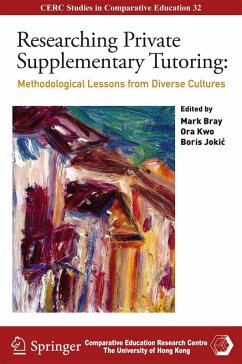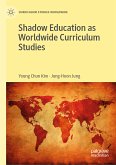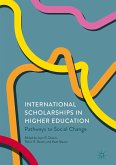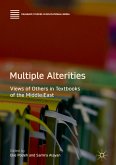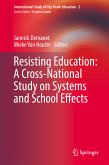Private supplementary tutoring, widely known as shadow education because of the way that it mimics mainstream schooling, has greatly expanded worldwide. It consumes considerable family resources, provides employment for tutors, occupies the time of students, and has a backwash on regular schools. Although such tutoring has become a major industry and a daily activity for students, tutors and families, the research literature has been slow to catch up with the phenomenon. The topic is in some respects difficult to research, precisely because it is shadowy. Contours are indistinct, and the actors may hesitate to share their experiences and perspectives. Presenting methodological lessons from diverse cultures, the book contains chapters from both high-income and low-income settings in Asia, Caribbean, Europe and the Middle East. Separately and together, the chapters present valuable insights into the design and conduct of research.The book will assist both consumers and producers of research. Consumers will become better judges of the strengths, weaknesses and orientations of literature on the theme; and producers will gain insights for design of instruments, collection of data, and interpretation of findings.
The editors: Mark Bray is UNESCO Chair Professor in Comparative Education at the University of Hong Kong. Ora Kwo is an Associate Professor in the Comparative Education Research Centre at the University of Hong Kong. Boris Jokic is a Scientific Associate in the Centre for Educational Research and Development at the Institute for Social Research in Zagreb, Croatia.
Dieser Download kann aus rechtlichen Gründen nur mit Rechnungsadresse in A, B, BG, CY, CZ, D, DK, EW, E, FIN, F, GR, HR, H, IRL, I, LT, L, LR, M, NL, PL, P, R, S, SLO, SK ausgeliefert werden.

